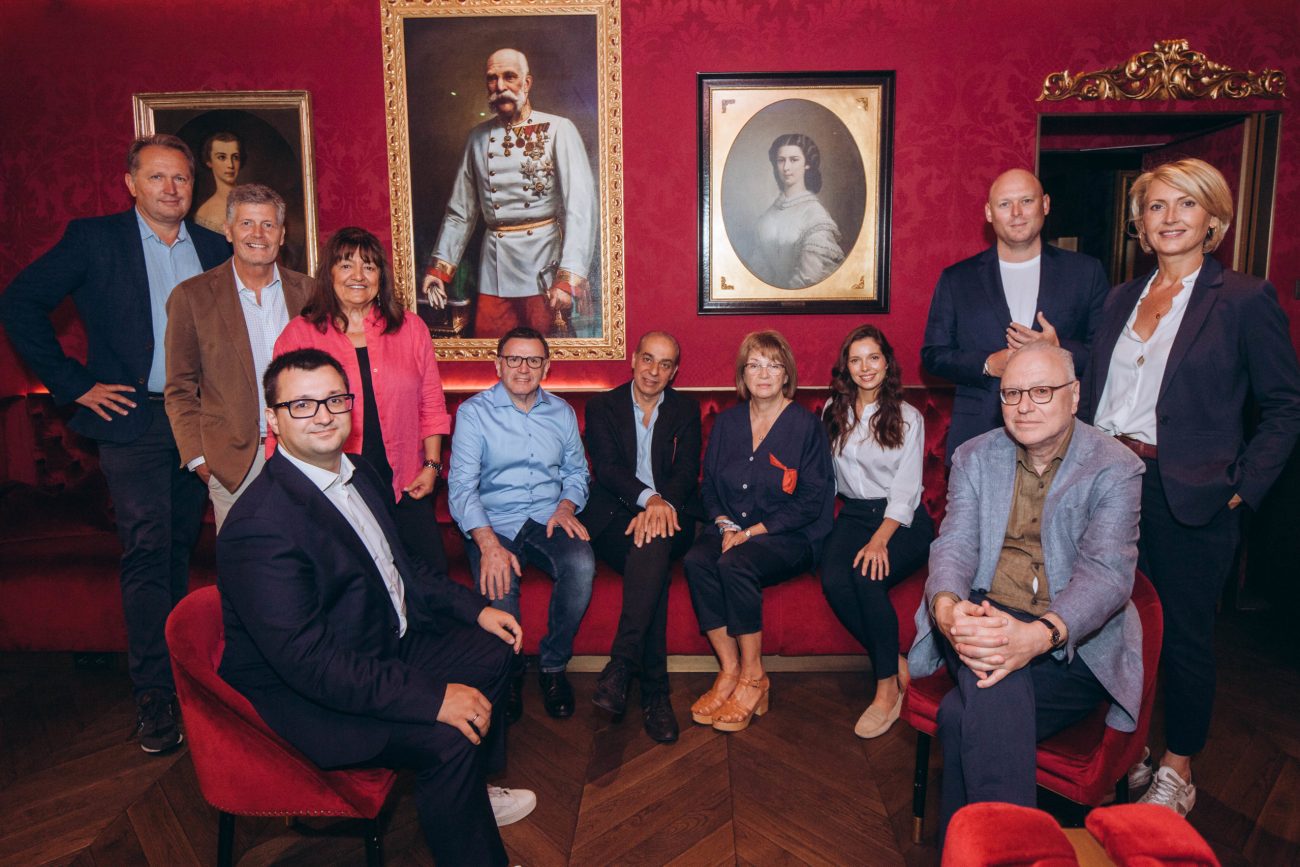The annual meeting of the Gault&Millau community took place in Vienna on the 18th September.
Secretary of State Susanne Kraus-Winkler discusses the current situation and challenges with Gault&Millau representatives from around the world.
The Genuss Messe, a gastronomic festival organised by Gault&Millau Austria, took place on 16 and 17 September. On the Monday following the event, members of the Gault&Millau international community, representing countries from France to Dubai, met at the Hotel Sacher for an international exchange. The Secretary of State for Tourism, Susanne Kraus-Winkler, was invited as a guest speaker. She discussed the role of gastronomy for tourism with the food journalists and was available to answer questions as a representative of the Austrian government.
At the beginning, Susanne Kraus-Winkler explained the importance of tourism to the national economy and documented it with impressive figures: “Tourism represents 6.2% of our national GDP and on average more than 200,000 people work in the industry. We have around 41,000 catering establishments, including some very small ones. And we have around 11,000 hotels in Austria. In addition, 45,000 private homes are rented out to everyone via platforms such as Airbnb, but also booking.com. Austria is a tourist destination. We have areas where regional GDP can be as high as 60%”.
Generational change
In the interview, the Secretary of State highlighted a particular challenge for the future: “We know that 75% of all restaurants and hotels in Austria will have to look for successors in the next ten years. Of course, it will also mean a big change in the industry itself, as we see some hotels and restaurants struggling to find a way forward because of their location, their ability to adapt to the new competition.”
Gastronomy as a destination
When asked if gastronomy was a decisive reason for travelling to Austria, Kraus-Winkler’s answer was a clear yes. Gastronomy comes fourth in the list of reasons to spend a holiday in Austria. It’s not just about nature, sport and culture, but also gastronomy. Many come for the traditional dishes from Wiener Schnitzel to Kasspätzle, but many also come for the superior gastronomy. As a result, there is a lively discussion about whether well-known leaders are needed as figureheads, and it is agreed that a host is needed above all, regardless of the role he or she plays in the company. Someone who greets guests by name and gives them a warm feeling.
Workforce shortage
When asked about this, Susanne Kraus-Winkler discusses the current challenges in the job market, but emphasises from the outset that more people are working in gastronomy and tourism than ever before. “In July, we had almost 250,000 employees in the industry. But of course, because of work-life balance and a different understanding of work, people generally work fewer hours in their lives, so we may need even more employees. But the problem, particularly with professionals and especially with managers and service staff, is the same all over the world. It always depends on the location and the image of the restaurant whether people want to work there. What we’re seeing at the moment is that those who don’t have interesting locations and concepts are fighting much harder”, said the government representative. The challenge for the future will be that work in the catering sector will have to be adapted to the new generations understanding of work.
The role of restaurant guides
Martina Hohenlohe, editor at Gault&Millau Austria, would like to know from Susanne Kraus-Winkler what influence restaurant guides have on a country’s gastronomy. The Secretary of State underlines the important role of guides in providing an overview of a country’s gastronomic offering and quality. All the information are collected to design a gastronomic tour. And many customers want to know who the new number one is somewhere, as gourmets follow world-famous chefs almost everywhere.
Analogue versus digital
As a result, a discussion erupted as to whether a printed guide is still necessary or whether everyone is already using applications anyway. The 68-year-old Secretary of State presents herself as a defender of digital media and praises the great opportunities. Marc Declerck, publisher of Gault & Millau Belgium, reports that the printed book is very popular in his country, with a proud print run of 30,000 copies, although there is also a free app with the same content. It’s things like value, reliability compared to many bloggers and relevance as a gift that continue to speak for a guide. “Printing is certainly not dead if you use it properly,” points out Declerck.
After all, there is a consensus that print is absolutely justified these days, but that the next generation will hardly ever buy printed publications. We’re in a transitional period.
Affordable luxury
Finally, the discussion turns to the value of gastronomy in different countries. There is no doubt that restaurants in countries such as France and Italy play a more central role than in Austria. In this country, however, residents treat themselves to an average of one restaurant visit a week, despite rising prices, explains Susanne Kraus-Winkler.
“So I think gastronomy is an affordable luxury, and that’s why I’m 100% sure that gastronomy is and always will be one of the most important parts of the tourism industry.”
Susanne Kraus-Winkler
Finally, Sacher chef Anton Pozeg and his team impressively demonstrate at lunch that local cuisine may well be the main reason for a visit to Austria. The international editors of Gault & Millau applauded the great chef with gratitude after the menu.
By Bernhard Degen

